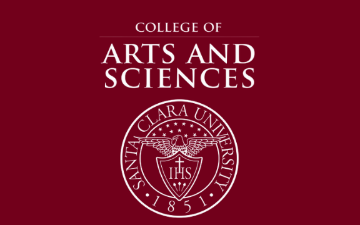
Irina Raicu, director of the Internet Ethics program (@IEthics) at the Markkula Center for Applied Ethics, in conversation with Assistant Professor Sara Krehbiel.
In Santa Clara University’s Math and Computer Science department, Assistant Professor Sara Krehbiel has designed and taught (twice so far) an innovative quarter-length course on differential privacy and AI fairness: two of the key ethical issues that computer science and software engineering students are likely to encounter in their professional roles.
There are two pre-requisites for students who enroll in the class: at least one quarter of programming and one quarter of a probability course (though one quarter of an algorithms course is also recommended).
The students who choose the course tend to come with some prior understanding of the social impact of technologies that undermine privacy or fairness, and a desire to better understand the relevant technical details of measures that try to mitigate potential harms. But Prof. Krehbiel says that feedback from students who have taken the course shows that they are very much excited to think (and talk) about the “why” of things, too, nor just the “how.” That part doesn’t surprise her; more surprising, perhaps, has been the students’ focus on technical precision and interest in the complicated math—their desire, as Prof. Krehbiel puts it, “to think both rigorously and big picture.”
The course addresses a variety of topics, including the impact of sample size on accuracy; the intersection between attempts to de-pbias algorithms and anti-discrimination laws that prevent the collection and use of certain types of data; and the distinct issues of false positives and false negatives in the context of algorithmic predictions (one example that the class focuses on is the use of algorithmic decision-support tools in the criminal justice context; the students discuss and dissect the details of the seminal “Machine Bias” article published by Pro Publica in 2016).
While AI fairness and efforts to debias algorithms and data sets are hot topics of research (not to mention public debate), Prof. Krehbiel finds that her students are equally engaged on the topic of differential privacy.
The course is project-based, and over the course of the quarter students have to submit parts of what will ultimately become their final project. They also have to do a presentation of their project (and the underlying issues that it aims to address) to their fellow students. They are allowed to work either on their own or in groups, though the professor’s recommendation is that they choose the latter.
While the term “ethics” may not come up much in the class discussions, the conversations about privacy rights, the balancing of benefits and harms, and the effort to achieve algorithmic fairness (with the inherent difficulty of defining the latter) are all about ethical concepts and ethical dilemmas. And one of the 2 required textbooks for the course is titled The Ethical Algorithm. Whether students realize it or not, during the entire quarter, they are identifying and addressing ethical issues that are at the forefront of current debates about law and policy, too.
California may be seen as a leader in the area of privacy law, but at the same time the state and local governments also frequently propose a variety of technological interventions that pose substantial risks to privacy and demand technical mitigations. A bill under current consideration, for example, would “give county recorders and others the ability to use biometric measures like face and voice recognition to verify people’s identities digitally.” Critics of the measure raise both privacy- and fairness-related concerns. In this active and ever-shifting environment, Santa Clara University students who take Professor Krehbiel’s class are better prepared to identify—and help to explain and effectively address—both the ethical and the technical dimensions of efforts that aim to solve societal problems.
